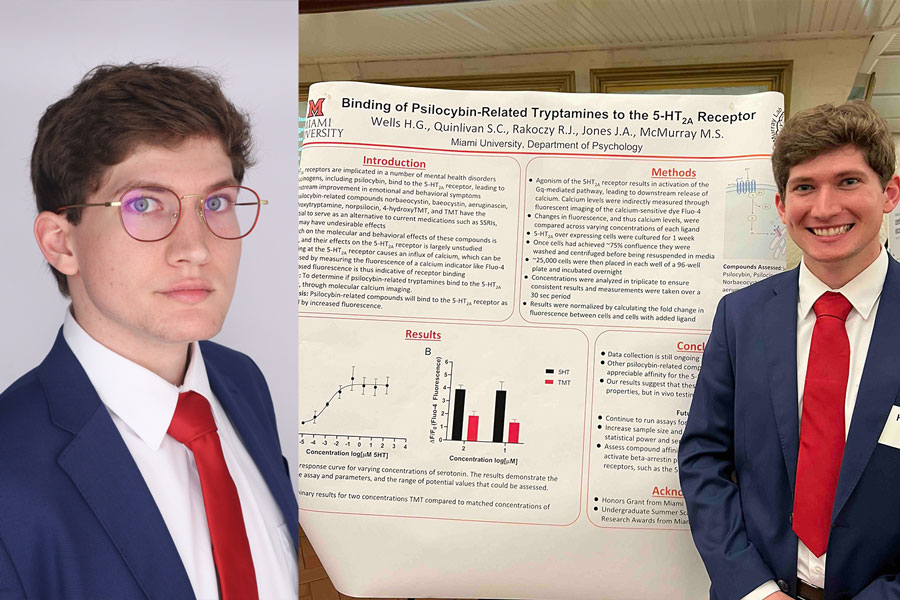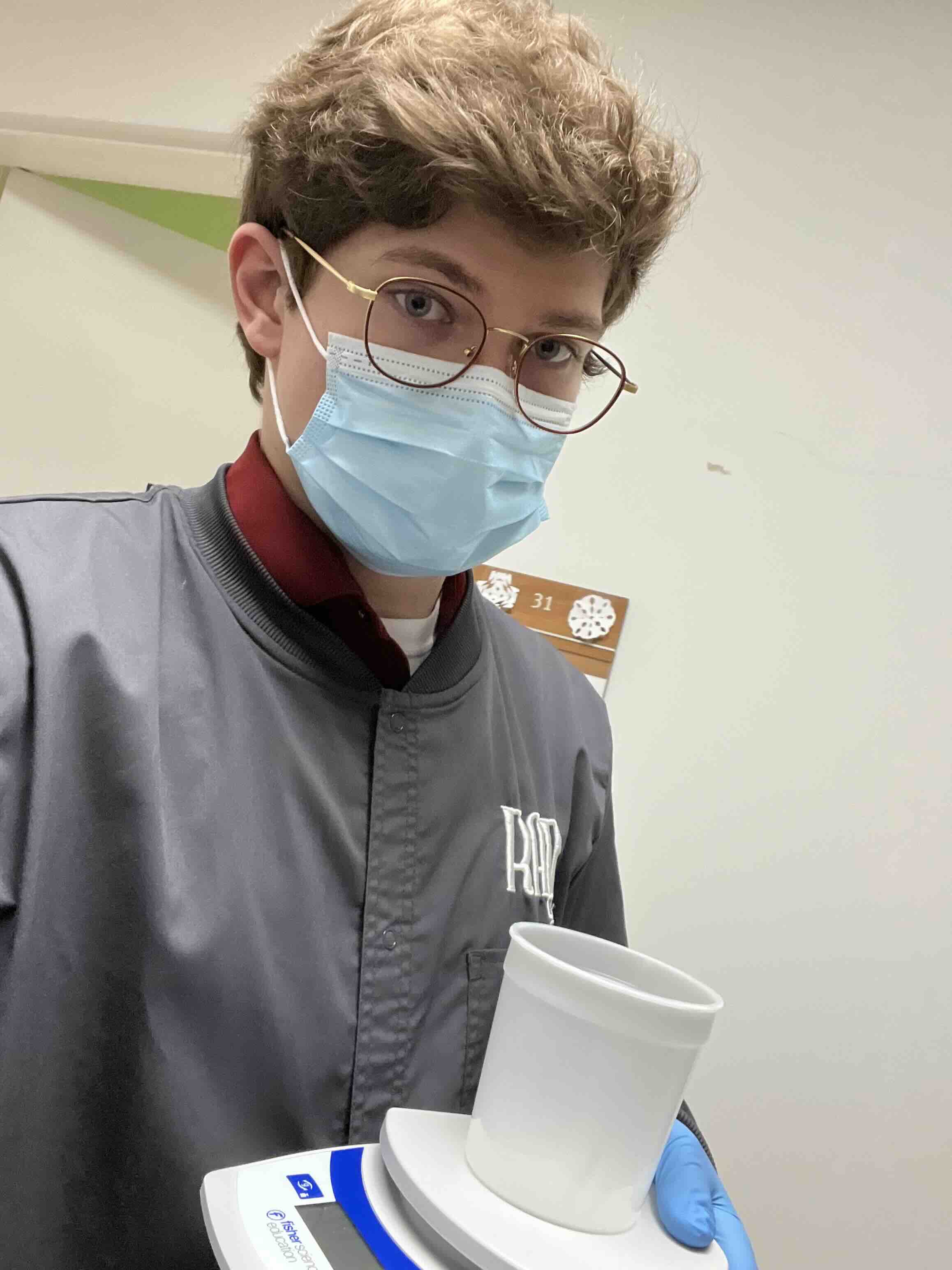Senior Psychology major conducts research with psychedelics to explore their effects on mental health
Hunter Wells ‘24, majoring in Psychology with a co-major in Neuroscience, is discovering alternatives to depression treatment through psychedelic compounds.

Senior Psychology major conducts research with psychedelics to explore their effects on mental health
After the COVID-19 pandemic, there has been a 25% increase in mental illness worldwide. With more people suffering from depression and anxiety, more support and treatments are needed to help individuals. That's where Hunter Wells, a Psychology major and Neuroscience co-major, found the opportunity to conduct research on mental disorders and illness.
Working with associate professor of Chemical, Paper, and Biomedical Engineering, Andrew Jones in his Jones Lab, Wells and his peers have been discovering the opportunities that psychedelics present as an alternative treatment to rising mental health cases.
"We could see similar symptoms in people, but it could be caused by different things,” Wells said. “Someone may have depression caused by interruption in dopamine signaling pathways or because of serotonin signaling, so we need to keep those things in mind when we're actually giving drugs to people that might affect something that doesn't actually help them."
 Hunter Wells working in the Reward and Addiction
Hunter Wells working in the Reward and Addiction Disorders (RAD) Lab under the mentorship of Dr. Anna
Radke.
During his first year at Miami, Wells found that blending the “soft” and “hard” sciences of psychology and neuroscience respectively expanded the scope of his knowledge and theory. His interest in that overlap led him to work with former assistant professor of Psychology Matthew McMurray. By Wells’ junior year, McMurray asked him to be a part of a larger research effort in the Jones lab.
"Dr. Jones is able to synthesize psychedelic compounds from magic mushrooms using genetically engineered E. coli bacteria," Wells said. "It's a really effective way of producing our own psychedelics. Not many labs can work on psychedelics because they're Schedule 1 substances, so it's really cool that we were able to do that."
Wells' own research focuses on assessing the ability of the psychedelic compounds to bind to the serotonin receptors that are thought to mediate their therapeutic effects. He uses a special fluorescent dye that binds to the calcium released by the compounds binding to serotonin receptors. By measuring the amount of light emitted at different concentrations, Wells can determine the affinity of each compound for the receptor.
Throughout his research project Wells also worked closely with Ryan Rakoczy, a former postdoctoral research associate and current visiting assistant professor in the Department of Psychology. Rakoczy pushed Wells to implement a true hands-on experience.
"Dr. Rakoczy wants me to figure things out on my own,” Wells said. “It's made me read through a lot of different literature, so it's been a great personal experience."
Wells’ work in the lab has allowed him to develop other skills, such as literature analysis, acceptance of criticism, and confidence. He’ll be joining the Huda Lab at Rutgers University as a research technician working on Parkinson’s research, with plans to continue his studies to receive his Ph.D. in Neuroscience.
"Very few people have done research on psychedelics and Parkinson's, and having fallen in love with the potential of psychedelics I would love to explore their effects on a disease so personal to me,” Wells said. "I'm very excited to begin working with Parkinson’s models, and I hope I can examine their overlap in the future.”